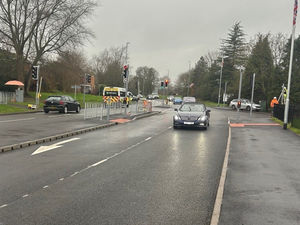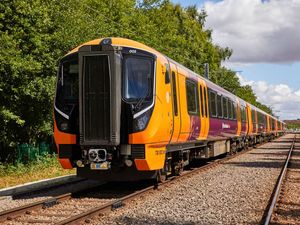Boris Johnson: UK Government looking at Maglev trains
The UK Government is looking at magnetic-levitation trains as a future transport option.
The Maglev technology is currently used in Japan where passengers travel at 268mph – 18mph faster than what High Speed 2 will achieve.
In 2007, the UK Government rejected proposals for a Maglev train line between London and Glasgow, in favour of high-speed rail.
But, with HS2 now being approved after years of delay, the Prime Minister says the Government is "considering" implementing the technology, as a possible future transport option.

Boris Johnson told the Express & Star: "Yes, we are looking at that technology. HS2 will run on it. It will be a high-speed electric rail. This is an incredible link.
"HS2 will actually be the fastest train in Europe. Not everybody may be excited by that fact, but I am. I think it is a great thing we are able to achieve that kind of technology.
"But, as you know, the UK has pioneered lots of other high-speed-technology. The UK invented Maglev, so we are certainly looking at it. It does seem to be incredibly expensive. The Japanese are doing it but in the future it may be one of the things we want to consider."
Unlike traditional rail technology, including HS2, where trains travel on rail tracks, Maglev trains are levitated slightly off the tracks and are propelled forward using magnets.
The lack of friction allows the trains to achieve high speeds. In Japan, Maglev passenger trains travel at a top speed of 268mph. And in testing, the trains reached more than 300mph.
The system also connects passengers arriving at China's Shanghai Pudong International Airport to the Shanghai Metro.
Maglev technology was created by an English inventor called Eric Laithwaite. The world's first commercial Maglev line opened in 1984 in Birmingham where the trains only travelled at 26mph for a stretch of 600 metres between Birmingham Airport and Birmingham International railway station. It closed in 1995 because of reliability issues.
As the Prime Minister highlighted, Maglev technology is expensive. In Japan, a new line currently under construction is expected to cost £63 billion. However, that is still less than HS2's expected cost of £107bn, which has risen from £20bn since 2010.
The 2007 Maglev proposals, called UK Ultraspeed, linked 16 stations from London to Glasgow, including Birmingham.
The estimated travel time between Birmingham and London would have been 30 minutes. In contrast, HS2 will take 52 minutes.The train line connects Shanghai Pudong International Airport and Longyang Road Station





